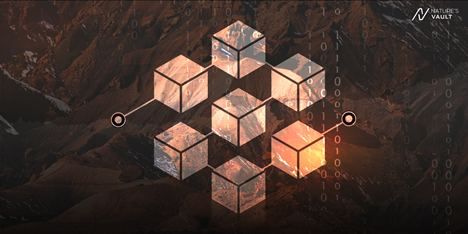
Blockchain and crypto are changing major industries around the world. From banking to supply chains, it revolutionizes several aspects across businesses and industries of all sizes. The crypto market which was only worth $1 billion almost a decade ago, has now exploded into a massive $2 trillion industry and what originated with the Bitcoin blockchain, has evolved into a full-fledged crypto ecosystem with over 18000 different projects.
Blockchain solutions have emerged to solve real-world problems. And one of the critical issues they are solving is preserving Natural Capital by avoiding gold mining. Gold mining is known for being among the world’s most harmful industries. It displaces populations, taints drinking water, harms workers, and damages natural habitats.
As a whole, gold mining has had such a negative influence that it is now jeopardizing people’s health and ecosystems globally.
Gold Mining’s Devastating Environmental Effects
Gold has been the most precious component of jewelry and a preferred mode of exchange for centuries. However, mining just one ounce of gold from ore can produce around 20 tons of solid waste. Most gold mining methods involve moving enormous amounts of dirt and rock, which is harmful to the biodiversity in the area. A mine’s daily activity can devastate wetlands and waterways.
Similarly, the operation of massive fossil fuel-powered mining equipment results in immense greenhouse gas emissions. Mine mishaps and leaks represent an even more significant hazard to neighboring land and water resources.
Furthermore, the mercury used in artisanal and small-scale gold mining activities can, unfortunately, become airborne and pollute the air and water nearby. Even using sodium cyanide to extract gold from ore without being adequately confined can damage air and water.
Acid mine drainage has also been an issue with the rise of gold mining. Chemical reactions between sulfides and surface elements result in sulfuric acid being released into the environment. And this chemical reaction can enter a feedback loop and continue for hundreds of years. Other metals such as cadmium, arsenic, lead, and iron have polluted rivers and streams, devastating lives.
However, viable alternatives are emerging, and blockchain technology is making that happen.
Going Green with Blockchain Solutions
Blockchain technology and its features like cryptocurrencies and tokenization of real world assets can address the long-standing gold mining problem. It accomplishes this by enabling the tokenization of gold preservation and letting users invest in preserving actual gold in the ground. Thus, the benefits of gold may be reaped without actually mining any more gold.
While this concept sounds too good to be true, one project may be making it a reality. Nature’s Vault uses blockchain technology to tokenize the preservation of gold. It is unlocking the value of in-ground mineral assets without the negative environmental consequences of mining. With its $LEGACY token, which is linked to tokenized NaturesGold, it allows people to invest in preserving gold.
It is, in fact, one of the first projects to introduce a new concept known as Preserve-to-Earn. The platform allows users to stake and earn using $LEGACY tokens, where each token is backed by at least 0.01 grams of NaturesGoldTM. The best part is that real gold is quantifiably preserved underground while investors continue to profit from $LEGACY tokens. And Nature’s Vault commits to acquiring rights over, and preserving significantly more unmined gold, from the proceeds of $LEGACY Token sales.
Making a Positive Impact on the Environment
Natural Capital is diminishing year after year, and the environmental consequences of mining are contributing to this. The devastation of the Amazon rainforest—a biologically rich environment that functions as a check on global warming—is intensifying due to a gold mining boom. And it’s high time for governments and citizens to take action on this by preserving natural reserves.
However, there seems to be light at the end of the tunnel now that blockchain has emerged. It has the potential for a tremendous positive impact on the environment. Moreover, with projects like Nature’s Vault introducing sustainable alternatives to gold mining, things are certainly set to change. The future indeed lies in people caring about the planet and adopting a new way to invest in metals and other natural resources.

